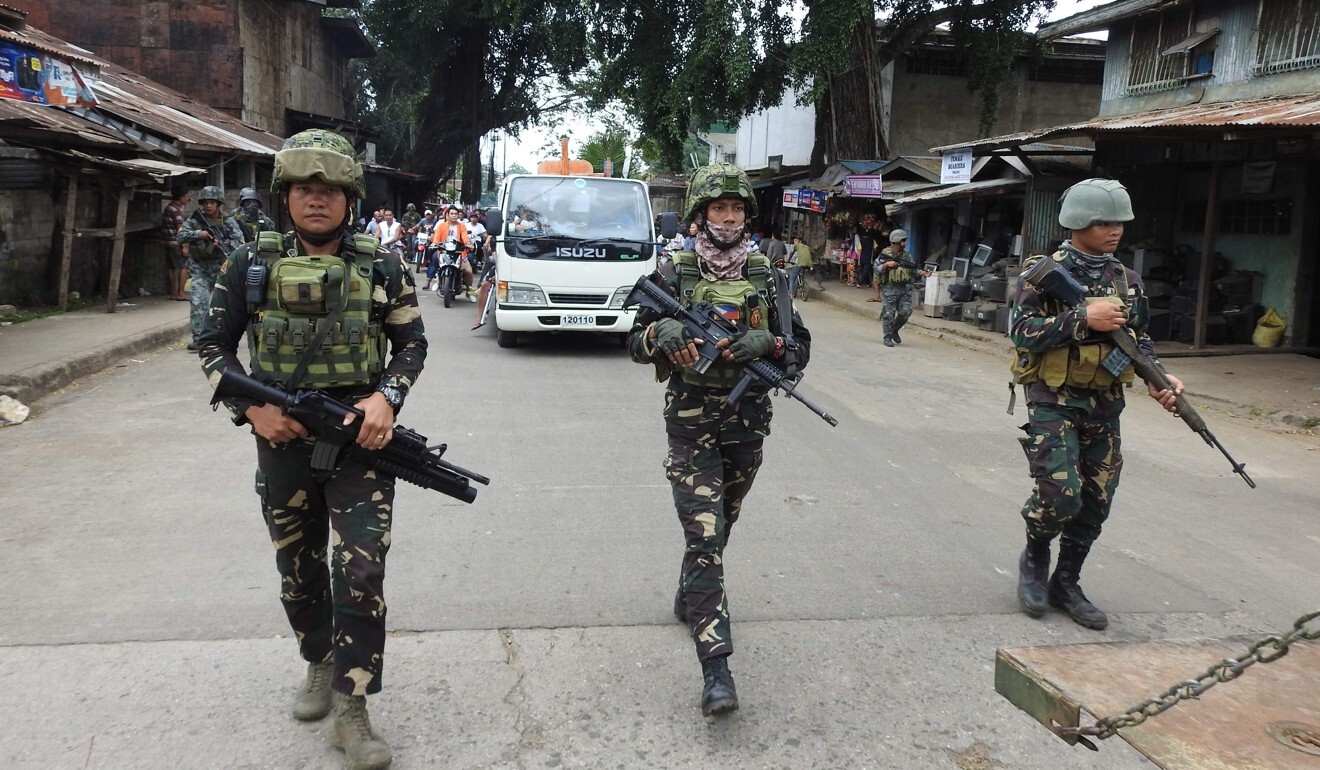
Philippine police kill four army soldiers in deadly shoot-out ‘mix-up’
- An initial military report said the soldiers were trying to locate a suspected suicide bomber when their vehicle was stopped at a police checkpoint in Jolo
- The police have denied opening fire on the soldiers for no reason, claiming self defence – prompting the incident to be referred for investigation

Four army soldiers, including two officers, who were trying to locate a suicide bomber in the Philippines’ volatile south have been shot and killed by the police who suspected them of being criminals, officials said.
Regional military commander Lieutenant General Cirilito Sobejana said he asked the National Bureau of Investigation, Manila’s version of the FBI, to investigate the killings in Jolo town due to conflicting accounts of what happened. But Sobejana stood by the slain officers, saying they “were doing their job.”
“Whatever is the reason, they were shot by the policemen,” Sobejana told reporters. “We’re having that investigated.”
An initial military report and accounts by two army officers said the four army intelligence men, including a major and a captain, were trying to locate a suspected foreign suicide bomber who was believed to be with local Abu Sayyaf militants when their vehicle was stopped at a police checkpoint in Jolo.

They identified themselves to the policemen but were later fired upon by them, the military report said.
An army officer with knowledge of what happened said that after identifying themselves to the police, the army intelligence men left but were tailed by a van of policemen. Sensing that they were being followed, the soldiers stopped their vehicle and one of the officers got out with both of his hands up, apparently to indicate he had no hostile intent.
But the policemen opened fire and killed the four soldiers for unexplained reasons, said the army officer, who spoke on condition of anonymity because of the delicate nature of what transpired. When the police left, other army officers arrived and found their colleagues already dead, the army officer said.
An initial police report, however, had a different account.
It said Jolo policemen were on patrol with anti-illegal drug agents in the town’s Bus-Bus village when they spotted the vehicle with “four armed male persons” whom they stopped. The four were directed to drive to the Jolo police station “for verification” but when they arrived there, “the said persons fled”, the police report said.
Police chased the four, who got out and pointed their firearms toward the policemen, the report said. “Before they could pull the trigger, the Philippine National Police personnel were able to shoot them in defence,” sparking an exchange of shots that killed “the four suspects,” the police report said.
An army statement said its commanding general, Lieutenant General Gilbert Gapay, “is enraged” and vowed “there will be no let up in our quest for truth and justice.”
The violence reflects the often-complicated conditions under which the campaign against Abu Sayyaf and its allied foreign and local militants has been waged by the military, with backing from the police, for about three decades.
Thousands of troops have been deployed to the predominantly Muslim province of Sulu, where Jolo is the capital, in recent years on orders of President Rodrigo Duterte to try to finish off Abu Sayyaf. The group of a few hundred fighters has been labelled a terrorist organisation by the United States and the Philippines for bombings, ransom kidnappings and beheadings.
Abu Sayyaf, which includes factions aligned with Islamic State, has been weakened considerably by battle setbacks, surrenders and infighting but remains a national security threat.